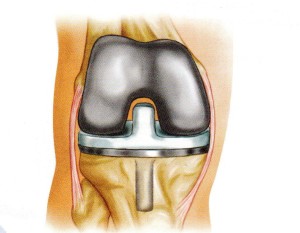Report Finds No Evidence to Support New Hip and Knee Replacements
 A recent FDA-supported initiative sought out to find evidence of the safety and perceived benefits of five recent orthopedic devices used in major joint replacement. In light of increasing reports of metal-on-metal hip complications, and the push for innovative solutions for newer, safer hip and knee replacements, the review came at a critical time for aging Americans looking for relief from degenerative joint conditions and reduced mobility.
A recent FDA-supported initiative sought out to find evidence of the safety and perceived benefits of five recent orthopedic devices used in major joint replacement. In light of increasing reports of metal-on-metal hip complications, and the push for innovative solutions for newer, safer hip and knee replacements, the review came at a critical time for aging Americans looking for relief from degenerative joint conditions and reduced mobility.
Spearheaded by Art Sedrakyan, an associate professor at Weill Cornell Medical College in New York, the international research team assessed evidence for introducing new joint replacements to help determine if more regulation and clinical trials are needed to protect consumers from potentially unsafe devices.
Thousands of adverse reports on incapacitating hip and knee replacement problems have already been logged with the FDA, suggesting many of these innovative products produced by companies like Zimmer, DePuy and Stryker may not be a safe as they seem.
The study selection included five new joint implants:
- 3 total hip replacement systems (ceramic-on-ceramic bearings, modular femoral necks, and uncemented monoblock cups)
- 2 total knee replacement implants (gender specific knee replacement and high flexion knee systems)
New technologies in joint replacement not any safer, study shows
The researchers examined data from observational studies on more than 13,000 patients and 15,384 implants, using information gleaned from national joint registries. After performing a systematic evaluation of comparative studies, clinical trials and registries for comparative safety and efficacy of five hip and knee joint replacements, the team found that none of the devices improved patient outcome when compared with older devices, already on the market.
Recent devices like the Zimmer NexGen high flexion knee replacement, not only showed lackluster results in terms of improved patient outcome, they were also associated with a higher rate of revision surgeries, due to early complications or joint failure.
The researchers concluded that new artificial joints “are being introduced to the commercial market without sufficient high-quality evidence for improved benefit over existing, well-proven and safe but equally suitable alternative implant solutions.”
“Reforms that provide for more robust post-market oversight of incremental innovations in medical device technologies will be key in helping to promote more rational use of these products,” argues Art Sedrakyan and his study colleagues.
Hip and knee replacement problems plague millions
More and more Baby Boomers are seeking superior knee and hip joint replacements to relieve chronic osteoarthritis and help them lead active lives. And every year, a new crop of gender-specific devices or high flexion implants promise increased durability and enhanced flexion. The purpose of this review wasn’t to criticize the orthopaedic industry, but to highlight the need for policy change when investing and promoting new device innovations, without substantial evidence of their safety.
Early failure and severe hip replacement complications like metal blood poisoning have triggered several high-profile recalls in recent years. DePuy’s ASR hip system was pulled off the market in 2010, and its Pinnacle Ultamet line of implants has been tied to cobalt and chromium poisoning, premature loosening and excruciating pain.
Litigation involving these allegedly defective medical devices has swelled to epic proportions, as plaintiffs claim they were implanted with dangerous products that had been cleared for sale without adequate pre-market testing.
Hopefully this recent review, published in the British Medical Journal, will spark actions and policy changes to help prevent patients from being exposed to further unnecessary harm.
- BMJ, Appraisal of evidence base for introduction of new implants in hip and knee replacement: a systematic review of five widely used device technologies http://www.bmj.com/content/349/bmj.g5133
- Science Daily, No convincing evidence to support use of new hip and knee implants, review finds http://www.sciencedaily.com/releases/2014/09/140909192044.htm


 Resources
Resources
 Resources
Resources
